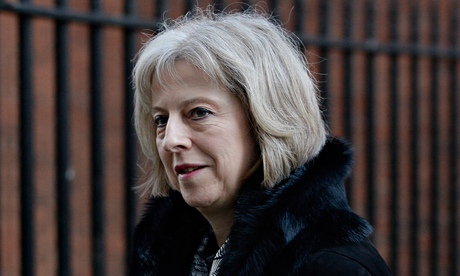
Plans by the home secretary, Theresa May, to force health professionals to report cases of female genital mutilation (FGM) to the police are unlikely to lower the extent of abuse and risk dissuading families from seeking medical help, according to the Royal College of Paediatrics and Child Health.
In a strongly worded intervention, the college, which is responsible for training and examining doctors specialising in health issues relating to children, has warned there is no “credible or conclusive” evidence that the move would better protect children.
In its submission to the home secretary, the college says May’s plan to enforce mandatory reporting of FGM to the police risks a series of unintended consequences, including deterring families and abused children from visiting their doctor. Under the current system doctors are obliged to report suspicions that a child is suffering harm to social services.
The college writes: “A recent interaction by one of our members with a parent of a child who had undergone FGM in their country of origin raises particular concerns. Since moving to the UK, this family had been made aware of the harmful consequences of FGM and, as a result, had been wishing to seek health assistance for their daughter to reduce the risk of complications following the procedure.
“This mother expressed concerns about accessing health services for fear of police intervention, in light of recent media attention and the possible introduction of mandatory reporting.”
May has proposed the mandatory reporting of FGM to the police in the light of damning statistics which show that since 1985 there have only ever been two prosecutions and a small number of police investigations into cases involving the alleged partial or total removal of the external genitalia of female children.
An estimated 137,000 women and girls with FGM, born in countries where the abuse is practised, were permanently resident in England and Wales in 2011. The number of girls who have undergone FGM while resident in the UK is not known.
The Home Office wishes to apply sanctions to doctors and teachers who do not report FGM cases to the police – either through retraining, suspension or debarment.
The college has welcomed the focus on FGM in recent years, but suggests that the impact of efforts to increase awareness through the Department of Health’s FGM Prevention Programme should be allowed to be felt before the introduction of a “blunt legislative instrument that could undermine the cultural approach of risk and responsibility in the current child protection system”.
The college also fears that the move, and language used by the government in its proposed plans, suggest that there is a hierarchy of child abuse in which FGM is at the top.
It writes: “The RCPCH is particularly concerned with the language used in the document, referring to FGM as an ‘extremely harmful form of child abuse’ and subsequent implications of suggesting that one form of child abuse is more serious than another, unhelpfully reinforcing a hierarchy of abuse, and potentially leading to a variation in response and care received by vulnerable children and young people.”

